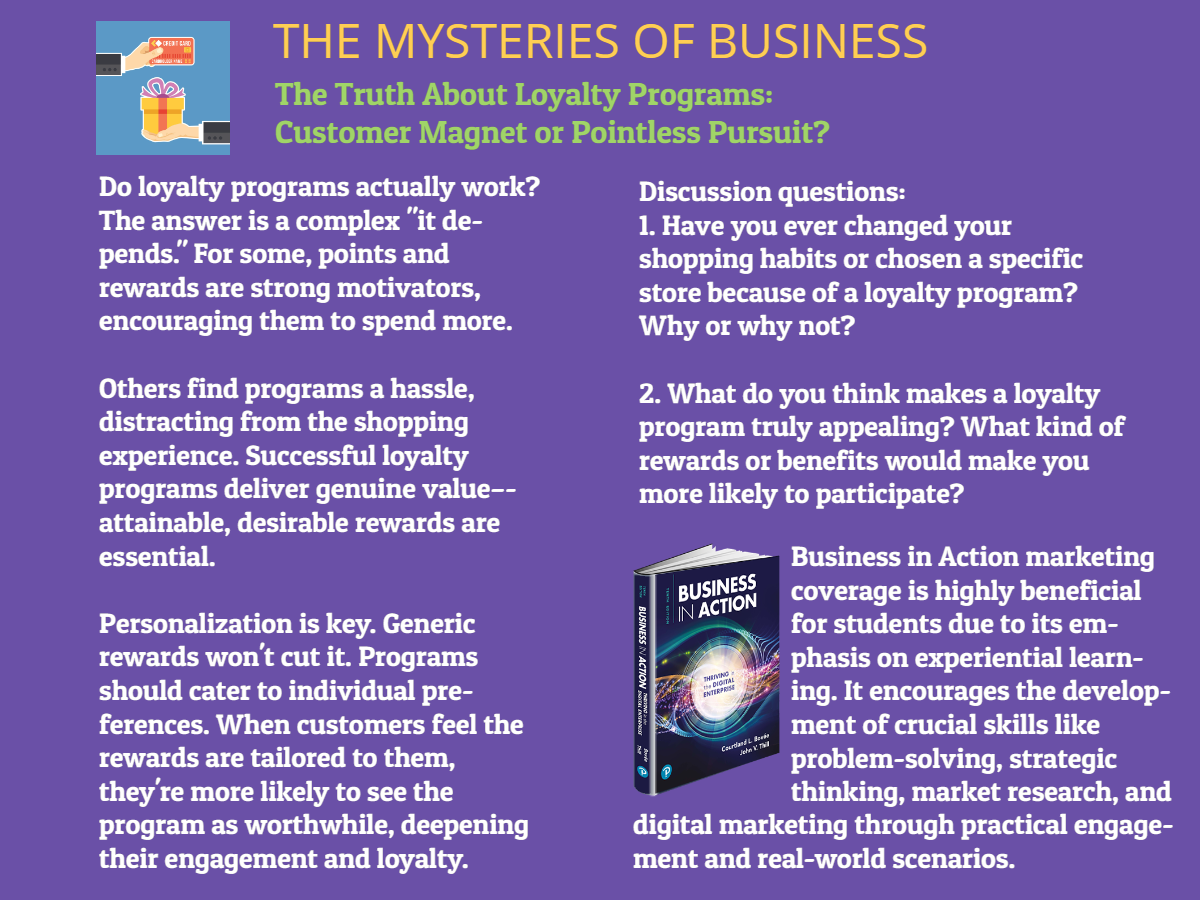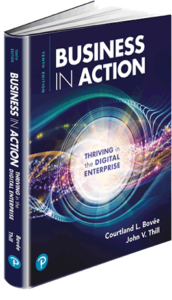
Here are answers to the discussion questions:
- Have you ever changed your shopping habits or chosen a specific store because of a loyalty program? Why or why not?
Yes, I have changed my shopping habits and chosen specific stores because of their loyalty programs. For example, I frequently shop at a particular grocery store chain because of their rewards program, which offers points for every dollar spent that can be redeemed for discounts on gas or future purchases. I find this program valuable because the rewards are easy to earn and redeem, and they provide tangible savings on products I would buy anyway.
However, I have also avoided certain loyalty programs that felt too complicated or didn't offer rewards that were meaningful to me. I once signed up for a clothing store's loyalty program but never used it because the points system was confusing and the rewards didn't align with my shopping preferences.
- What do you think makes a loyalty program truly appealing? What kind of rewards or benefits would make you more likely to participate?
For me, a truly appealing loyalty program is one that offers:
- Simplicity: The program should be easy to understand and use, with clear rules for earning and redeeming rewards. Complicated points systems or excessive restrictions can be frustrating and discourage participation.
- Relevant rewards: The rewards offered should be things that I actually want or need. Discounts on products I regularly buy, exclusive access to sales or products, or even personalized recommendations based on my shopping history would all be appealing incentives.
- Attainable rewards: The rewards should feel achievable within a reasonable timeframe. If it takes an extremely long time or an unrealistic spending amount to earn a meaningful reward, I'm less likely to engage with the program.
- Flexibility: I appreciate loyalty programs that offer multiple ways to earn and redeem rewards, such as earning points through purchases, referrals, or engaging with the brand on social media, and the ability to choose from various reward options.
- Integration with my shopping experience: A loyalty program that seamlessly integrates with my typical shopping experience, such as a mobile app that tracks my points and offers personalized deals, would make me more likely to participate consistently.
Ultimately, a loyalty program that demonstrates a genuine understanding of my preferences and offers value that enhances my shopping experience would be most appealing and effective in securing my ongoing business.
 Business in Action is the ideal choice for any Introduction to Business instructor seeking to provide their students with a comprehensive, engaging, and practical learning experience. This textbook stands out for its clear and accessible writing style, which effectively explains complex business concepts in a way that resonates with students from diverse backgrounds. The content is carefully organized and updated to reflect the latest trends and challenges in the dynamic world of business, ensuring that students gain relevant and applicable knowledge.
Business in Action is the ideal choice for any Introduction to Business instructor seeking to provide their students with a comprehensive, engaging, and practical learning experience. This textbook stands out for its clear and accessible writing style, which effectively explains complex business concepts in a way that resonates with students from diverse backgrounds. The content is carefully organized and updated to reflect the latest trends and challenges in the dynamic world of business, ensuring that students gain relevant and applicable knowledge.
With its rich array of real-world examples, case studies, and practical applications, Business in Action helps students bridge the gap between theory and practice, fostering critical thinking, problem-solving, and decision-making skills that are essential for success in today's competitive business landscape. Moreover, the textbook's robust suite of supplementary materials, including online resources, such as the powerful MyLab (now supported by artificial intelligence), and interactive learning tools, enhances student engagement and supports various teaching styles. By choosing Business in Action, instructors can be confident that they are providing their students with a solid foundation for understanding the multifaceted nature of business and preparing them for the challenges and opportunities that await them in their future careers.